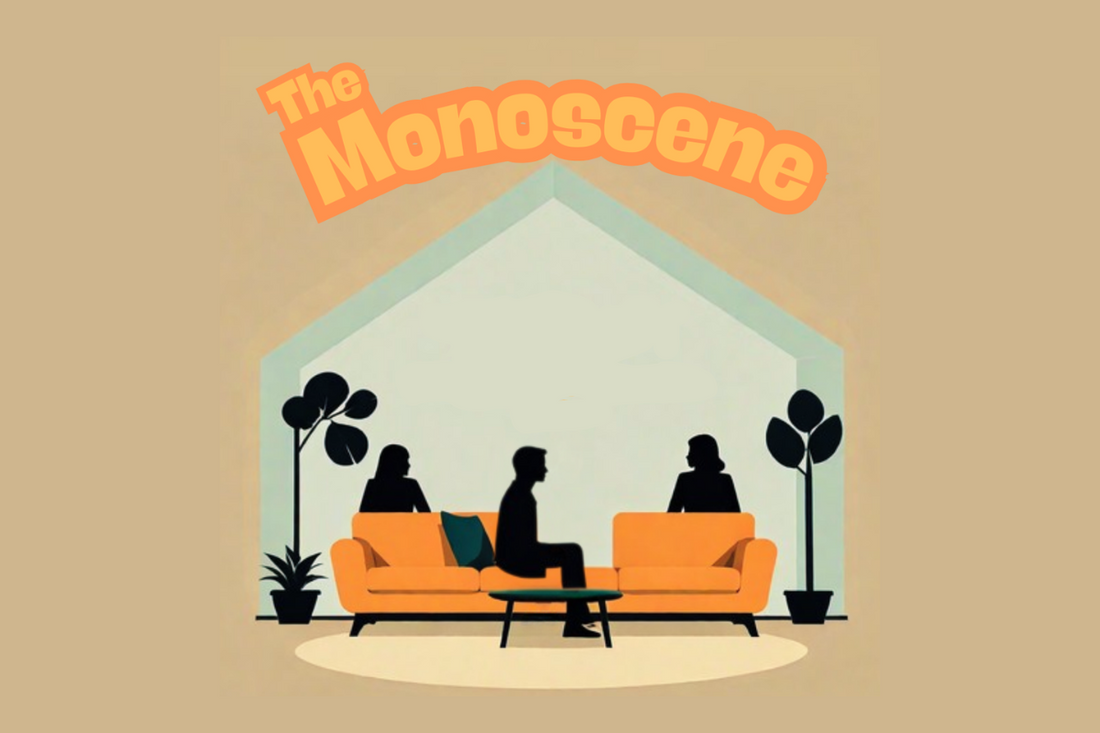Form Spotlight: "Monoscene"

Written by Kenzie Rhody
The “Monoscene” can be intimidating but not for Eno Okung. Having recently taught a four-week workshop on this classic long form, they provided a breakdown of its rules and benefits, plus some tips on approaching slower-paced, extended play.
What is the “Monoscene”?
According to the IRC Improv Wiki, “A Monoscene is an improv form that takes place in a single location in a single span of time, with no external edits of any kind. It is frequently referred to as an improvised one act play.”
Focusing on building up characters and their environment, the form is known for its slow pace. It usually lasts at least ten minutes but can go over an hour long, allowing players time to explore their characters and setting thoroughly.
“We’re just telling a continuous story in real time,” Okung said. “It is really grounded and patient.”
With a “Monoscene,” it’s important to start simple and build things up over time. Great scene work requires well-defined characters and a clear location. Object work is often used to fill space and silence.
According to Okung, “As improvisers and as humans, we feel this pressure to do the right thing or to make quick decisions.”
Players participating in a “Monoscene” need to fight the urge to find a punchline quickly. By being patient, improvisers can give the audience a much bigger payoff at the end of the scene.
Advice From an Expert
As a member of Ants to Gods, Okung has plenty of experience with the “Monoscene.” The troupe has used the format for many of their shows.
Improvisers should always be asking themselves, “If this is true, then what else is true?”
Your character and their relationship to the environment and others around them are things that help inform your next move. Improvisers sometimes get too caught up in the imaginariness of a scene.
Instead of feeling like you’re making things up, you should be reacting as if you are your character. This internal curiosity is integral to the “Monoscene.”
“You have signed up for the burden of creation as an improviser. Don’t be afraid of that,” Okung added.
If you’d like to learn more from Okung, keep an eye out! They hope to hold additional form intensives in the future. You can always check out the theater’s workshops page for more information.
